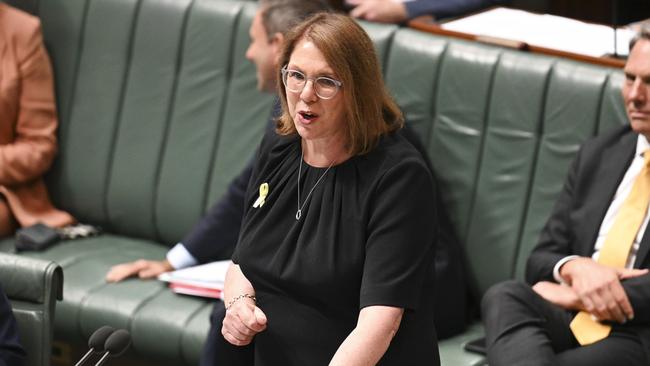We’re all at sea on transport productivity

Infrastructure Minister Catherine King expects “demonstrable progress towards getting the first vessels in the fleet will be made this year”. It is part of a mindset that assumes the regulating state and its allies know best – a mindset that is giving us a $15bn corporate commonwealth entity, the National Reconstruction Fund. That the economy needs reconstructing may be news to inventors and entrepreneurs but not to Industry Minister Ed Husic, who says the NRF is “investing in growing Australia’s industrial capabilities to create the secure, well-paid jobs of the future”. Note “industrial” – the idea that productivity grows when investors search for growth regardless of sector seems to have escaped Mr Husic. In a November speech he pitched an economy where workers “have a sense of pride in making things here, using Australian know-how and Australian resources”.
Anthony Albanese has a similar idea with his “strategic fleet” – up to 12 privately owned and operated freighters “to secure our ongoing access to fuel supplies and other essential imports”. As to paying for it, the government agrees in principle to a planning report recommendation that it should “bridge the cost gap” when the fleet is deployed for national needs. This could be covered by establishing a levy on vessels arriving in Australia to fund the fleet, and implementing a training levy to fund a financial assistance package for seafarers studying for qualifications.
The Maritime Union of Australia, overall, likes it a lot: “the essential first steps towards a sustainable, secure future for Australian seafarers working on their own coastline.” But the Productivity Commission argues that even with Australian labour laws applying, deregulating coastal shipping to allow more competition from foreign vessels would be more cost-effective. That could come by deregulating coastal shipping licences that now favour Australian crewed and registered vessels. In the early 1990s, the federal government got out of the shipping business and sold its long loss-making Australian National Line. Setting sail again, however modest the plan, would be another win for old Labor ideology over improving productivity.


As Reserve Bank of Australia governor Michele Bullock has made clear, improving productivity makes higher wages possible. It is a message the Albanese government, unfortunately, is not getting. In addition to its moves from the old Labor playbook to increase the power of unions and re-regulate employment, it wants to expand the public sector’s role in the economy. Perhaps there no longer are Labor hardheads with long memories to warn ministers against the plan for “privately owned and commercially operated Australian flagged and crewed vessels … available for requisition by the government in times of need”. Because that is what we are about to get.